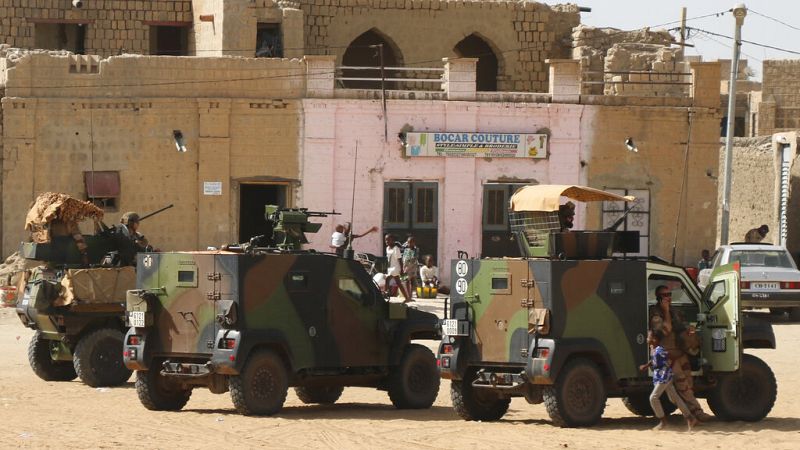Mali fuel blockade sparks fear and economic strain

Malians are growing increasingly anxious as Al-Qaida-linked militants tighten their blockade on fuel imports, torching trucks on key supply routes and threatening to choke off the country’s economy.
The armed group Jama’at Nusrat al-Islam wal-Muslimin (JNIM) announced the blockade in a video last week, claiming responsibility for recent attacks on convoys bringing fuel from neighboring Senegal. The tactic marks a shift in strategy, aimed at cutting off Bamako from vital resources.
Residents of the capital say fear is spreading fast.
“The information that we know now is that the jihadists have spread information that they are taking over everywhere. In Bamako this frightens us, we are afraid and we are worried,” said Cheick Oumar Coulibaly, a retired soldier. “But it is propaganda. They will not be able to take Bamako. I am a former soldier, I swear to God that the terrorists cannot take this country.”
Mali’s landlocked geography makes it especially vulnerable. The country relies on imports from Senegal and Côte d’Ivoire for essential goods, including fuel and cement. Economist Modibo Mao Makalou warned the blockade could have crippling consequences.
“33% of everything Mali buys as goods and services from abroad is fuel and its derivatives. So Senegal is an important source of supplies for our country. … It’s about stopping economic exchanges, economically suffocating our country, and above all, preventing the capital from getting supplies.”
The blockade follows years of escalating insecurity since militants seized control of northern Mali in 2012. Violence that was once concentrated in the north has steadily crept southward, with Bamako itself suffering deadly attacks in recent years.
Now, as fuel trucks burn on the roads leading into the capital, many Malians fear that beyond the violence, the insurgents are waging economic warfare aimed at suffocating the country.

